About Us
The Washington Center for Equitable Growth is a nonprofit research and grantmaking organization dedicated to advancing evidence-backed ideas and policies that promote strong, stable, and broad-based economic growth. Our fundamental purpose is to determine the channels through which rising economic inequality affects economic growth and stability in the United States.
Equitable Growth answers these questions by building a bridge between the academic and policy communities to research and analyze the effects of inequality, mobility, racial and gender inequities, and persistent institutional racism on U.S. economic growth and present those findings to policymakers, so they can create a more inclusive economy through evidence-based policy.
Key to Equitable Growth’s success is the support of our Steering Committee and the work of our staff. Equitable Growth’s Steering Committee includes top scholars in economics and influential policymakers. With support and counsel from our Steering Committee, Equitable Growth staff elevate research that is both relevant to policymakers and on the cutting edge of the fields of economics and the social sciences.
Founded in 2013, Equitable Growth has seeded more than $8.8 million to nearly 350 scholars in the United States through its competitive grants program as of the end of 2022. Our staff then elevates the findings of this research—what we know about rising inequality, declining mobility, and the consequences of longstanding racial and gender inequities and persistent racism—so policymakers can effect change and boost broadly shared growth.
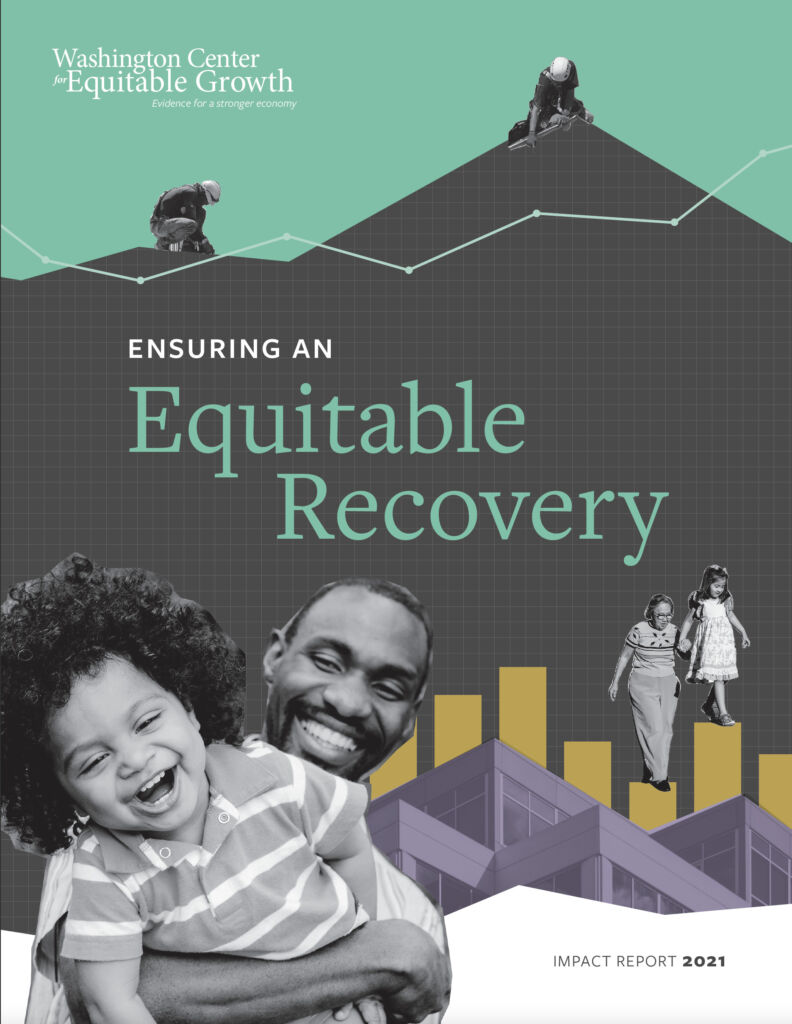
Simultaneously, we create feedback loops between academia and policymakers to inspire researchers to tackle the pressing economic questions and challenges facing our country. This evidence is elevated to policymakers through our events, convenings, Working Paper series, and other strategic communications and external outreach strategies. We connect the disparate strands of policy, communications, and research to seed long-term structural change in U.S. economic policies.
Our 2021 annual report, “Ensuring an Equitable Recovery,” chronicles the array of evidence-based policy recommendations we developed to drive the U.S. economic recovery from the COVID-19 recession. The report provides concise snapshots of innovative and successful initiatives spanning our key issue areas of measuring growth, family economic security, inequality and mobility, taxes and macroeconomics, market structure and competition, and raising wages.
Equitable Growth is committed to identifying additional avenues for exploration through our annual grantmaking request for research proposals and to continuing to build a bridge between academics and policymakers to help address inequality and achieve broad-based economic growth. Over the next several years, we will focus on how disparities among different racial and ethnic groups slows overall U.S. economic growth, as well as on how climate change affects growth, as we continue to elevate evidence for a strong U.S. economy.
To read our earlier annual reports, click here.
Our commitment to diversity, equity, and inclusion
Equitable Growth commits to use our power as an economic and grantmaking organization to fund more research based on the lived experience and legacy of structural racism, support more Black, Indigenous, Latino, and other underrepresented scholars seeking answers to these often-overlooked experiences, elevate those ideas to the policymaking community, and ensure the voices and experiences of Black, Indigenous, Latino and other underrepresented economists, policymakers, and staff members are reflected in the work we do. Specifically, as part of this commitment to our union employees at Equitable Growth represented by NPEU-IFPTE Local 70, we have published the demographic characteristics of our grantees, leadership, and staff.
Diversity, equity, inclusion, and belonging
The Washington Center for Equitable Growth is mission-driven to support and spur credible, cutting-edge research that informs policymakers and influences future scholarship on economic inequality and growth. Structural racism and gender discrimination play an outsized role in persistent and rising economic inequality in the United States. Research and analyses of inequality that fail to address those twin dynamics are incomplete.
We at Equitable Growth aim to live that understanding in our work by continually integrating the role that race and gender play into our research and our internal priorities. We strive to embrace equity and inclusion in our culture through ongoing learning and reflection, and are working to expand and strengthen the diversity of lived experiences represented by those with whom we engage. In that spirit, we are sharing here the demographic composition of our core stakeholders, starting with our leadership, staff, and advisory bodies.
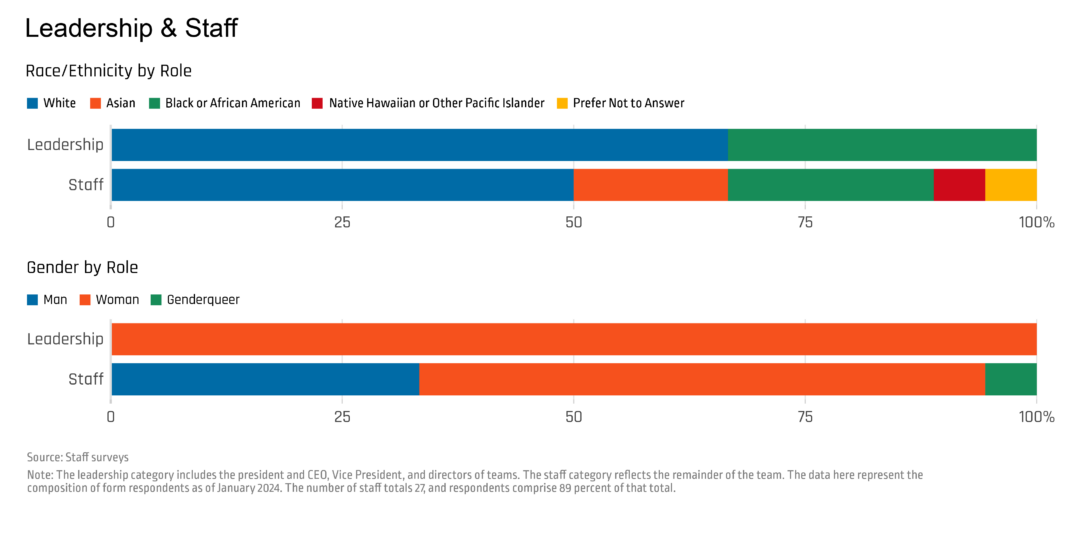
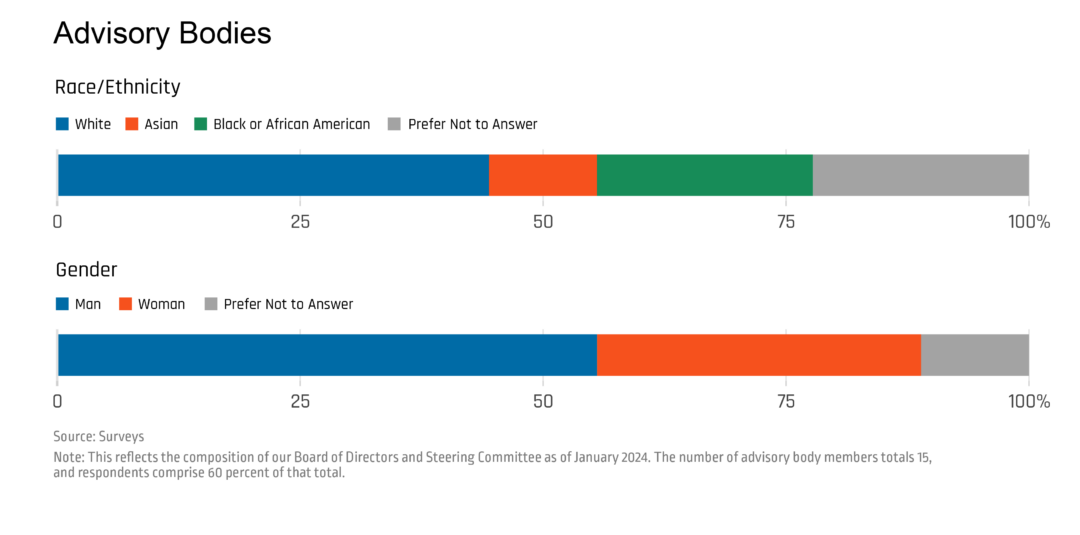
Next, we detail Equitable Growth’s network of grantees. We are fostering a community of academics to accelerate research on inequality and growth through our grant and scholar programs. By providing financial and professional resources, we support, cultivate, and mentor a diverse array of next-generation researchers in the economics profession and social sciences.
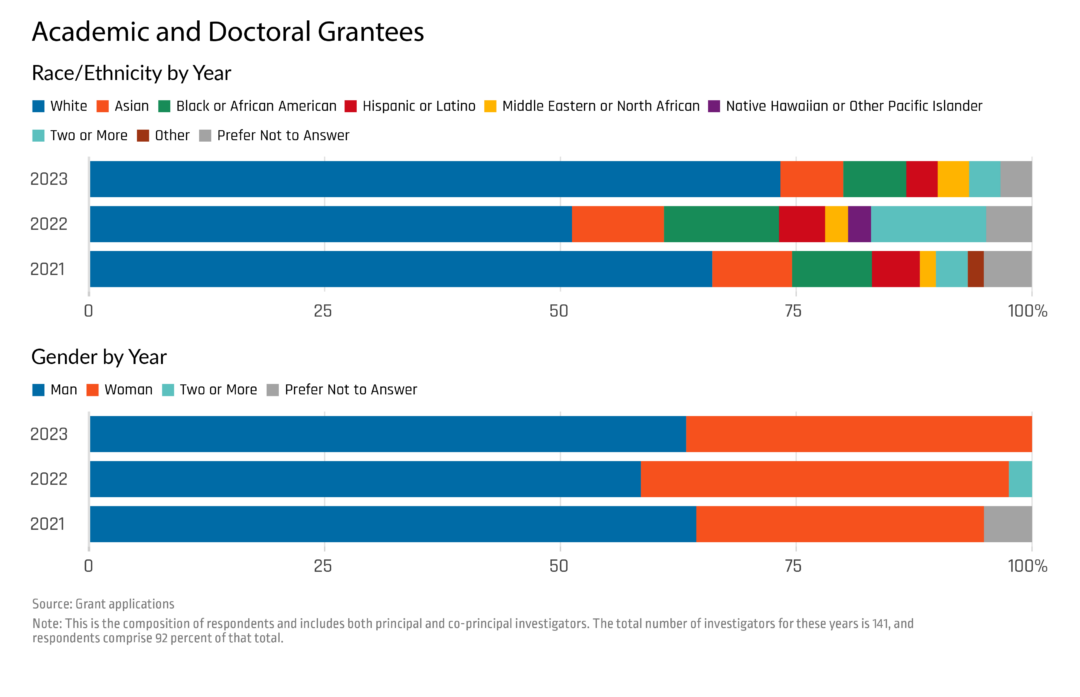
Equitable Growth also seeks to hold events that are innovative, inclusive, and representative of the communities with which we work. We are committed to continuously improving our event programming to better serve those communities, including underrepresented groups within academia, policymaking, and advocacy.
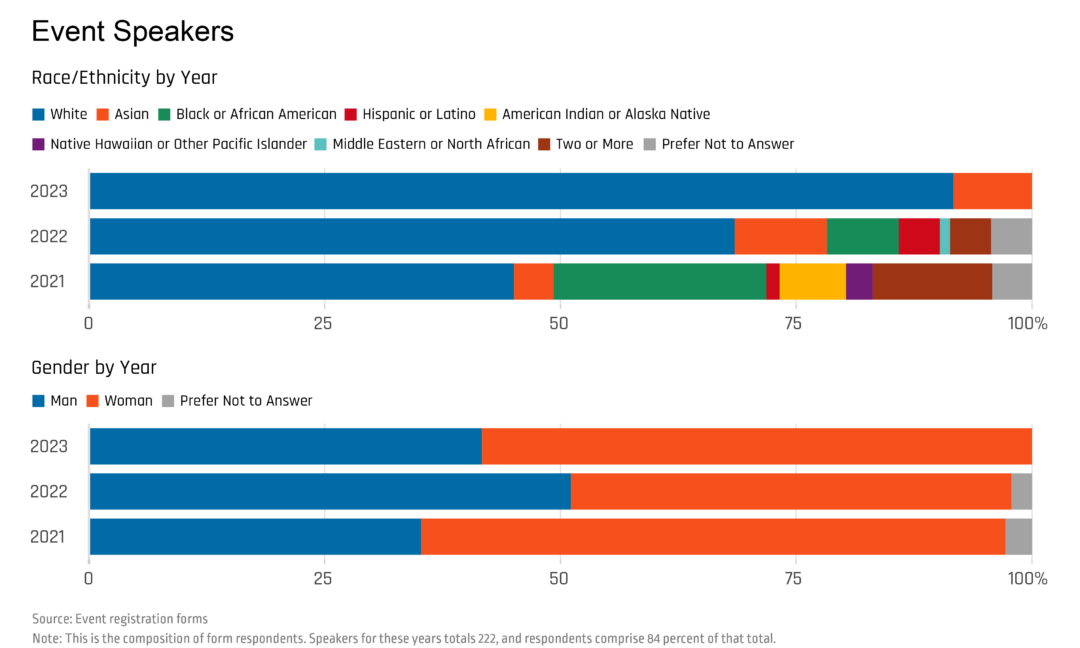
Equitable Growth will continue to hold ourselves accountable to our values by updating, expanding, and publishing these data twice a year. In this way, we can continue to measure our progress and strengthen the inclusivity of our programming.
Note: We use self-reported data to avoid bias in our reporting and present them here in aggregate. The categories for race/ethnicity and gender that appear in each graph reflect only those selected by the relevant stakeholder group. All forms used to collect this data allow for the selection of multiple options, and the selection of more than one option is reflected here, where applicable, via “Two or more.” The values available for race/ethnicity are as follows: American Indian or Alaska Native; Native Hawaiian or Other Pacific Islander; Asian; Black or African American; Hispanic or Latino; White; Middle Eastern or North African; Prefer not to answer; and Other (with specification requested). The values available for gender are as follows: Woman; Man; Nonbinary; Transgender; Genderqueer; Gender Non-Conforming; I do not know/I am not sure; Prefer Not to Answer; and Other (with specification requested).

